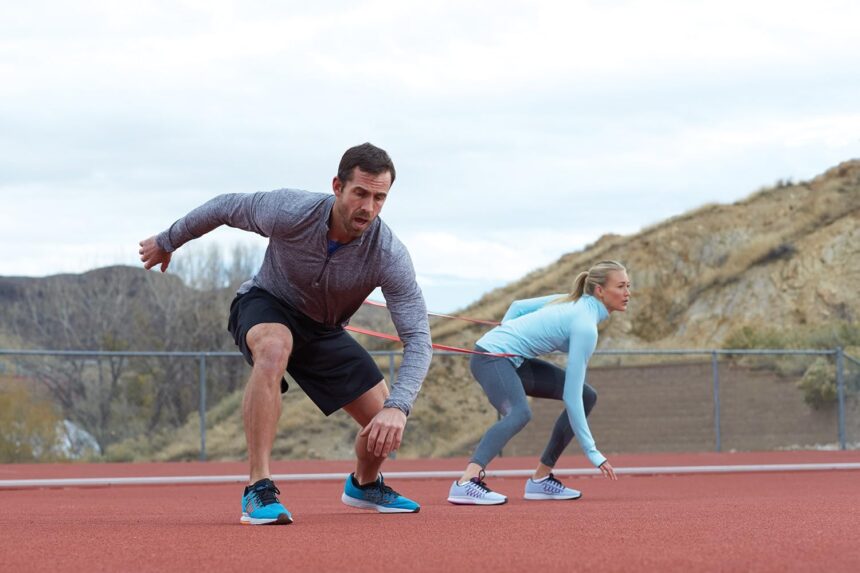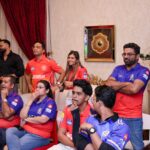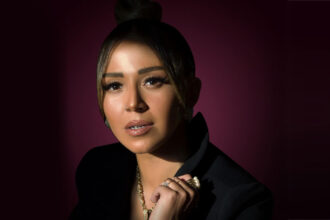In the modern sporting world, winning is no longer the only metric of success. Across the United Arab Emirates (UAE), a growing number of coaches are adopting an athlete-first philosophy, putting the well-being of their players above all else. Whether in elite academies in Dubai, school sports programs in Sharjah, or grassroots clubs in Abu Dhabi, this shift represents a profound transformation in the way coaching is approached—one that places physical health, mental resilience, emotional balance, and personal development at the heart of the training experience.
UAE coaches today are not just instructors—they are mentors, supporters, and guardians of long-term athlete welfare. Their mission is not only to build stronger players but to nurture healthier, happier individuals who can succeed both on and off the field.
The Shift Toward Holistic Coaching
For many years, athletic performance was defined by results—goals scored, matches won, medals earned. But in the UAE’s rapidly evolving sports environment, a broader understanding of success has emerged. Coaches now recognize that performance is deeply connected to overall well-being.
The athlete-first approach has gained traction through a combination of global sports psychology trends and national policy support. With initiatives emphasizing youth health, education, and long-term development, UAE’s sports federations and academies are prioritizing athlete care in coaching frameworks.
UAE coaches are embracing this movement not as a trend, but as a core value—committed to creating safe, respectful, and enriching spaces where athletes can thrive.
Mental Health: Supporting the Mind Behind the Muscle
One of the most significant changes in UAE coaching philosophy is the open acknowledgment of mental health as a vital part of performance. Coaches across various sports are receiving training in basic sports psychology, emotional intelligence, and stress management techniques.
Regular mental health check-ins, individual counseling referrals, and open-door policies have become standard in many teams. Coaches also incorporate mindfulness exercises, journaling, and breathing techniques into practice routines to help athletes regulate pressure and build resilience.
Instead of pushing through burnout or suppressing emotions, athletes are now encouraged to speak up, take mental rest days, and prioritize psychological well-being. This culture of openness is removing stigma and reinforcing the message: you are more than your performance.
Injury Prevention and Recovery Support
Injury is an unfortunate reality in sports, but UAE coaches are working proactively to prevent injuries and protect athletes’ long-term health. Strength and conditioning programs now include injury-prevention exercises customized to each athlete’s biomechanics. Coaches coordinate closely with physiotherapists to monitor training loads and recovery timelines.
When injuries do occur, the athlete-first model ensures a supportive recovery environment. Coaches stay involved throughout rehabilitation, maintaining communication, offering emotional support, and integrating athletes back into team dynamics at a comfortable pace.
Rather than rushing returns for short-term gains, UAE coaches emphasize full recovery—body and mind—ensuring that players come back stronger, both physically and emotionally.
Balanced Workloads and Academic Flexibility
For young athletes in schools and academies, balancing academics with sport can be overwhelming. Coaches in the UAE have taken active steps to support educational goals alongside athletic development.
Training schedules are now designed with flexibility in mind. Coaches encourage athletes to prioritize study time, coordinate with school staff, and avoid overtraining during exam seasons. Some academies even offer academic tutoring or partnerships with schools to ease the load.
This balance is not just practical—it reflects a deeper belief that athletes should never be forced to choose between dreams. Whether a player wants to pursue university education or a professional sports career, UAE coaches are there to help chart a sustainable path.
Emotional Development and Character Building
In athlete-first coaching, emotional intelligence is just as important as tactical skill. Coaches in the UAE now focus on building emotionally strong, confident, and self-aware players.
Team discussions often explore topics like dealing with failure, handling peer pressure, overcoming fear, and staying focused on personal goals. Coaches lead by example, showing vulnerability, honesty, and empathy. Some even bring in guest speakers—former athletes, psychologists, or community leaders—to guide athletes on topics of self-esteem and personal growth.
Athletes are taught how to identify emotions, express themselves constructively, and support each other through challenges. This creates a team culture of mutual respect and emotional safety, where everyone feels valued—not just for how they perform, but for who they are.
Nutrition, Sleep, and Lifestyle Education
Recognizing that peak performance relies on more than practice, UAE coaches also prioritize lifestyle education. Athletes are taught the fundamentals of proper nutrition, hydration, sleep hygiene, and time management.
Workshops and interactive sessions are organized to explain how diet affects energy, how poor sleep impairs reaction time, and how digital habits impact mental focus. Coaches work with dietitians and wellness experts to offer personalized guidance, helping athletes make smart decisions off the field as well.
This commitment goes beyond competition—it’s about building healthy lifelong habits, especially for young athletes still shaping their identities and routines.
Creating a Culture of Respect and Inclusion
Athlete-first coaching also means creating an environment where every athlete feels seen, heard, and respected. UAE coaches are at the forefront of inclusive sports culture, ensuring that players of different backgrounds, genders, skill levels, and abilities are treated with dignity.
From offering equal training time for girls and boys to designing adaptive sports programs for athletes with special needs, UAE coaches are leading with compassion and fairness. They emphasize team values like acceptance, unity, and celebrating diversity—not just as buzzwords, but as guiding principles.
This inclusive mindset builds team morale and individual confidence, making athletes feel safe to be themselves and motivated to grow.
Coach-Athlete Communication: Building Trust
Open, honest, and two-way communication is a defining trait of UAE’s athlete-first coaches. They take time to listen—to understand athletes’ needs, fears, and ambitions. Athletes are encouraged to share feedback, ask questions, and be part of team decision-making.
Many coaches hold regular one-on-one sessions, performance reviews, or informal chats over meals. These touchpoints create a bond of trust and mutual respect, which often translates into better performance and greater motivation.
In this environment, coaching becomes more than instruction—it becomes a partnership.
Empowering Athletes as Individuals
Above all, the athlete-first approach is about empowering players not just as competitors, but as people. UAE coaches teach leadership, goal-setting, and personal responsibility. They help athletes discover their identity beyond their sport—whether it’s as students, mentors, artists, or future professionals.
Coaches support athletes through setbacks, celebrate their milestones outside of sports, and encourage them to pursue passions. The result is not only stronger athletes but more confident, capable, and resilient individuals ready to succeed in life’s many arenas.








